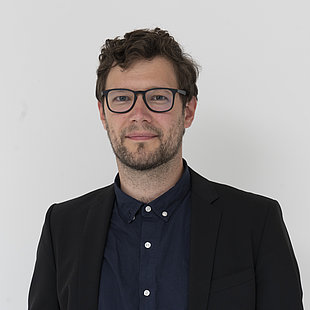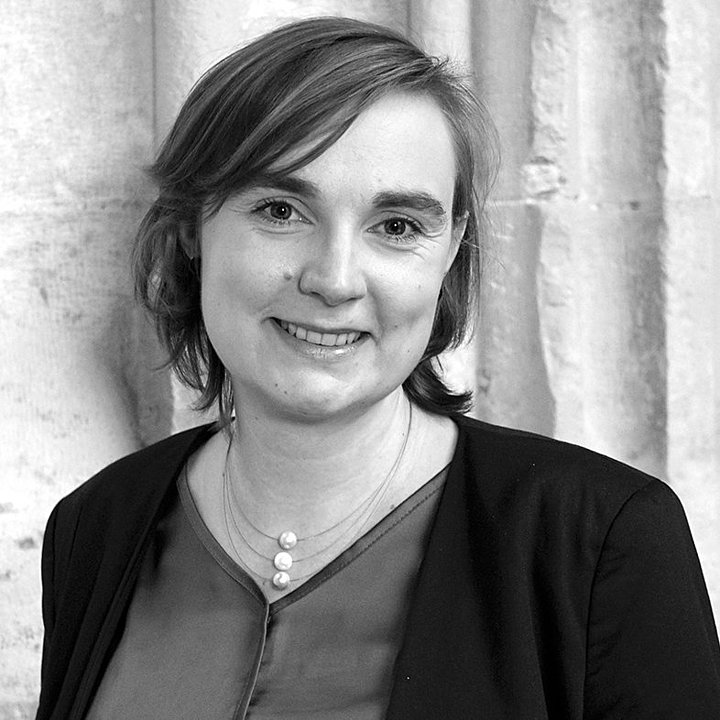Congratulations!
We cordially congratulate Nicole Schneider and Maximilian Buschmann on the Bavarian American Academy Dissertation Award 2022 which they received at the annual BAA conference with the topic "Representations and Uses of the American Revolution in Past and Present."
On Thursday, July 7, 2022, at 6 p.m., BAA executive board member Prof. Dr. Volker Depkat (University of Regensburg) welcomed both winners at Amerikahaus in Munich - Nicole Schneider joined virtually.
We wish both winners all the best for the future!
Photo: Nicole Schneider ©private / Max Buschmann ©Nani Schiffl-Deiler
Recipients of the BAA Dissertation Award 2022

private
Nicole Schneider is a postdoctoral Research and Teaching Assistant in American Studies at the Catholic University of Eichstätt-Ingolstadt. For her thesis on photography, social movements, and antiprecarity protest – entitled “Visual Protest, Viral Images and Virtual Participation: Protest and Photography in the Contemporary Movement for Black Lives” – she has received the Maximilian-Bickhoff-Foundation’s dissertation scholarship (2018-2021) and was awarded the 2017-BAA-Fellowship for a research stay at the Gilder Lehrman Center for the Study of Slavery, Abolition, and Resistance at Yale University.
Her doctoral thesis analyzes press photographs of current protests organized by the #Black Lives Matter Movement in the US in terms of their work for Black liberation. Mobilizing their visual-activist and political capacities, images like those awarded with the Pulitzer Prize for Breaking News Photography in 2015 and 2021, Schneider argues, become agents of the movement whose actions go beyond mere representation of protests and documentation of the Black liberation struggle. In their political-aesthetic and performative dimensions, these photographs negotiate the current matter of Black lives in the United States and articulate ontological dimensions of Blackness as political struggle and affirmative position. They become mobile and material discursive places that lift the protested debates into wider fields of consideration and visibility, complicating notions of society, politics, and interaction. In their memorial and narrative recursion, the press photographs address the American past and present and unsettle the belief in a clear end to racialized practices and attitudes, inherent in romanticized ideals of the Civil Rights Movement and tropes of colorblindness. Reading the photographs in this way, Schneider further understands their use of hashtags and social media symbolism as a means to create an imaginary of digital protest, enhancing the movement’s scope and potential. It is, thus, in the application of civil imagination (Ariella Azoulay) and attentive listening (Tina Campt) that press photographs begin to reveal the deeper structures of racialized systems, negotiating and unsettling long held beliefs and in|visible articulations of Blackness in America.

Nani Schiffl-Deiler
Maximilian Buschmann is a Research Associate at the Institute of History and Ethics in Medicine at the Technical University Munich. He works on the Research Project: „Brain Research at Institutes of the Kaiser Wilhelm Society in context of Nazi injustice“. In 2021, he received his doctorate from the Ludwig-Maximilians-Universität in Munich with a dissertation on the topic of “Hungerstreik. Transnationale Geschichte einer Protest- und Subjektivierungspraxis. USA ca. 1880–1945.”.
Within a transnational perspective, the PhD-thesis examines the “invention” of the hunger strike and its establishment as a form of protest in the United States. In detail, it reconstructs the diffusion of hunger strikes as an intertwined and often contested process of appropriation from the late 19th century to the reception of Gandhi in the struggle against racism and segregation. Based upon extensive archival research, it connects the history of feminism, anarchism, pacifism, slavery, and resistance against segregation and racism, with a history of the body, psychiatry, and imprisonment. The central argument asserts that prisoners while using hunger strikes as a politics of the body and for recognition, at the same time, they defended their rebellious self against regimes of medical knowledge and criminal justice.


